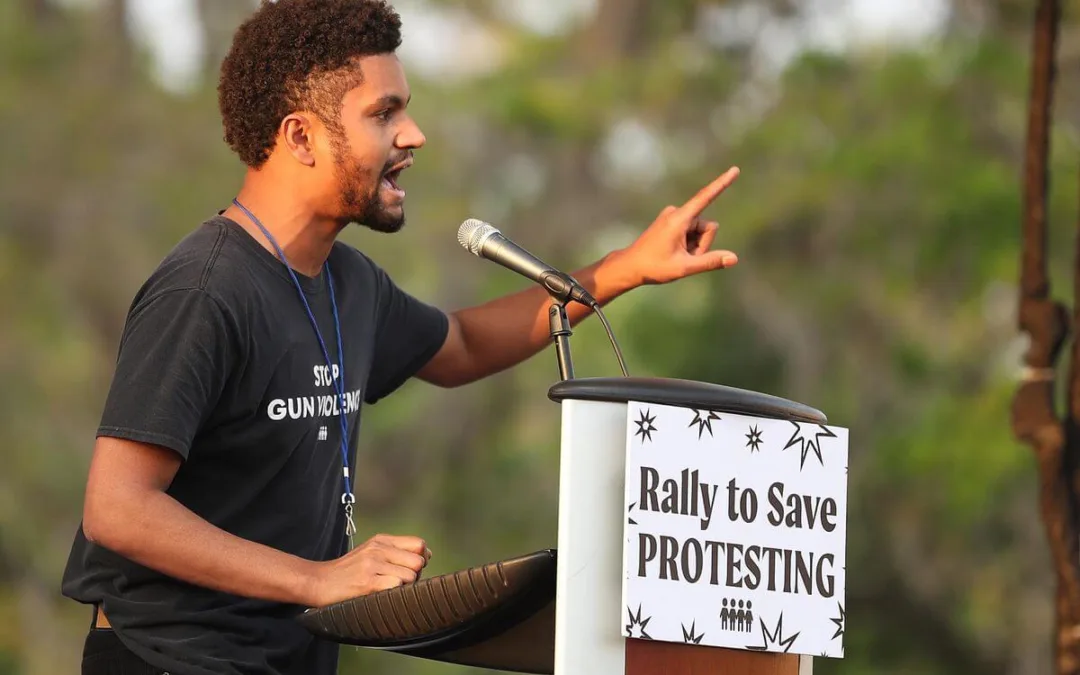
Photo by Sharon McCutcheon on Unsplash
While emphasizing our otherness can give otherwise disenfranchised people a sense of purpose, meaning, and community, there is a flip side.
Identity politics is the notion that marginalized people can create community together, share support, and gain political power by identifying with the trait they feel is most relevant to their existence. It has led to the creation of progressive social movements, like the civil rights, women’s rights, and LGBTQ rights movements, as well as reactionary movements like the alt-right (a cutesy euphemism for white supremacists), or incels, among others.
Identity politics can give otherwise disenfranchised people a sense of purpose, meaning, and community, regardless of where they stand in the political spectrum. It can help people recognize and accept otherness. But there is a flip side.
In my view, identity politics oversimplifies people. It defines people by one dominant identity or ideology, to the exclusion of anything else. But human beings are not monolithic creatures. We are complex, prismatic beings who can be several things at once. What if we are defined by a number of very disparate things?
I am a Mexican Jew. I am white. I may be bisexual. I am a staunch liberal, with some unorthodox views. I’m also an atheist. Here in the US, I feel Latina. In Mexico, I’m Mexican. When you are something as bizarre as me, weird things happen. How am I supposed to fill out the US Census questionnaire?
Related: Census 2020: Why It Will Affect Latino Communities
If you look at me, you will see a white woman. You won’t be wrong. Although I identify as one in all the surveys, and although I am privileged to be treated like one and I don’t pretend to be anything, I don’t really feel like one. In Mexico, as a white Jew, I was in the minority of the minority. As a white Mexican Jew in the U.S., it’s the same thing. You may think that I am a garden variety privileged white woman just by looking at me, but if I open my mouth, you will be confused by my accent. It annoys me when people, — including some of my fellow Mexicans — tell me that I “don’t look, Mexican.” Oh, but I am. Born and raised on tacos al pastor.
Labels and Assumptions
We can’t really make assumptions about people. I have been in social situations where people have said antisemitic things in my presence. When I protest, they tend to say that they didn’t know I was Jewish (not a good excuse), or that I don’t look Jewish (don’t get me started).
Identifiers like looks and speech are the most elemental traits by which people make assumptions about us. This is why living while Black in the United States is dangerous. But what about ideology, gender, sexual orientation, religious affiliation, or political persuasion?
RELATED: Property Is Not More Important Than Black Lives
After being married to a guy for about 15 years, I fell in love with a woman. A couple of gay friends informed me that they always knew I was a lesbian. Well, that was news to me, and not because I was in denial, as they assured me; I am simply not. I’m not sure that I fit into any existing sexual orientation label and I don’t really care. In a perfect world, neither should anyone. We can label ourselves anything we want, but putting labels on other people, even when it’s as benign as trying to welcome them into the fold, can feel slightly coercive. As a Jew, I’m historically sensitive to labels.
Labels and assumptions help us try to make sense of the world around us, but they also serve to divide and ostracize. Tyrants use them very effectively. Donald Trump consistently labels everyone he hates: the press is “the enemy of the people,” Mexicans are “criminals and rapists,” and protesters are “thugs.”
Labels don’t leave room for nuance, ambiguity, or different degrees of otherness. But we are much more than the sum of our parts. Even the most generic person has got to have more than one thing that makes them tick —sexually, spiritually, or politically. The notion of identity politics tends to emphasize the differences between us instead of what we have in common, which is that we are human. In social media, it can devolve into name-calling: snowflakes, Antifa, incels, elites, Karens, bros, feminazis, etc. As all well-intentioned notions, it can backfire.
I am the co-founder of a tech startup. My partner is also a woman. We both happen to be Latinas. In the world of tech startups, this is a rare occurrence. Women founders get much less funding than men; women of color get even less. When we were looking for capital, people would advise us to talk to angel investors that invest only in women, or only in women of color, or only in gay women of color. I wondered if the identity categories would become so narrow that I’d find someone that invests only in White-Female-Probably-Bisexual-Mexican-Atheist-Liberal-Jews-Who-Read Horoscopes-Religiously. While these ventures mean well, this approach keeps minority founders marginalized, turning them into second-class citizens. In an ideal world, regardless of our color, gender, or sexual orientation, we should be able to play in the same sandbox as everyone else.
We all know who we are. Let’s be human first.
Politics

Teamsters and UPS Reach Tentative Deal to Avoid Strike, 340,000 Workers to Get Raises
The tentative deal represents a huge win for full- and part-time UPS Teamster workers, who would get significant pay raises and better working...



One Republican Senator Is Blocking 265 Military Promotions, Leaving the Marines Without a Confirmed Leader
Sen. Tommy Tuberville's decision means these military officers are not getting the pay raises they’re owed, cannot move their families to wherever...
Local News



Teamsters and UPS Reach Tentative Deal to Avoid Strike, 340,000 Workers to Get Raises
The tentative deal represents a huge win for full- and part-time UPS Teamster workers, who would get significant pay raises and better working...



One Republican Senator Is Blocking 265 Military Promotions, Leaving the Marines Without a Confirmed Leader
Sen. Tommy Tuberville's decision means these military officers are not getting the pay raises they’re owed, cannot move their families to wherever...




